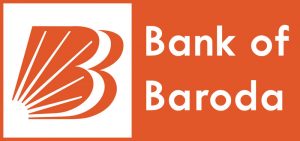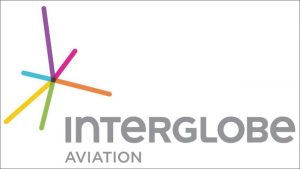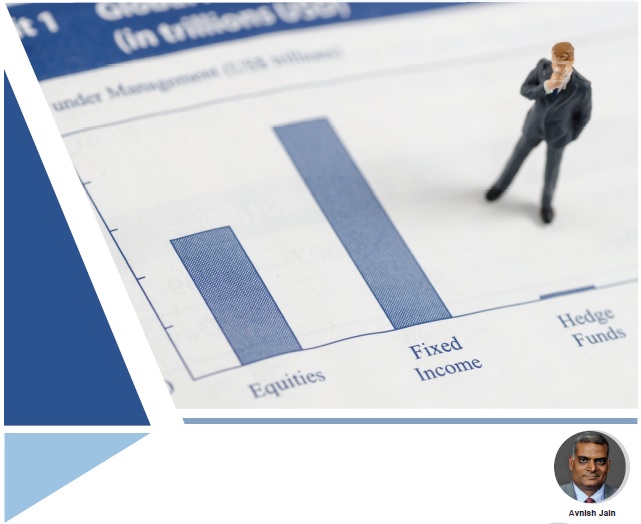
![]() Bank of Baroda (BoB) is a state-owned International banking and financial services company headquartered in Vadodara, Gujarat with a corporate office in Mumbai. BoB has total advances~ Rs 387,302Cr with a network of 5422 branches and 10441 ATMs. The bank has international presence with a network of 106 branches across 25 countries.
Bank of Baroda (BoB) is a state-owned International banking and financial services company headquartered in Vadodara, Gujarat with a corporate office in Mumbai. BoB has total advances~ Rs 387,302Cr with a network of 5422 branches and 10441 ATMs. The bank has international presence with a network of 106 branches across 25 countries.
BOB’s loan book grew at a modest pace of 9% YoY in Q2FY18 mainly led by domestic advances. Domestic loan book witnessed healthy trends (↑14% YoY) aided by strong growth in retail advances (↑26% YoY in) and stable growth in wholesale credit (↑15% YoY) in Q2FY18. Within retail, home loans outperformed (↑34% YoY in Q2FY18). However, the bank continues to curtail its low yielding international loan book (↓1% YoY in Q2FY18). The low cost CASA deposits grew at a robust pace of 24% YoY, term deposits declined by 5% YoY in Q2FY18. As a result, total deposits increased at a muted pace of 3% YoY in Q2FY18. CASA ratio improved by 580 bps YoY to 33.4% in Q2FY18. Going forward, we expect advances to grow at a healthy pace of 11% CAGR over FY17-19E.
Net interest income (NII) increased at a moderate pace of 9% YoY (in line with our expectation) on the back of healthy growth in domestic loan book in Q2FY18. However, net interest margin (NIM) declined by 27 bps YoY to 2.5% as incremental exposure to good quality accounts suppressed the yield on advances (↓125 bps YoY) in Q2FY18. We expect NIM to improve from here on (2.8% in FY19E) on account of declining interest reversal cases coupled with increasing retail share in the total loan book. Provisions increased at a much faster pace of 30% YoY as BOB continued to provide aggressively against stressed accounts in Q2FY18. As a result, net profit declined by 35.6% YoY (below our expectation) in Q2FY18. We have also increased our credit cost estimate for FY18E by 10 bps to 2.1%. Going forward, we expect net profit to increase at a CAGR of 64% (albeit on a lower base) over FY17-19E led by improvement in margins along with lower provisions.
BOB’s asset quality improved marginally as fresh slippages declined by 41% QoQ. Hence, Gross/Net non-performing assets (NPA) improved by 24/12 bps sequentially to 11.2%/5.1% in Q2FY18. Provision coverage ratio also (PCR) improved by 90 bps QoQFY18 to 67.2% as the bank continues to make provisions judiciously. The bank has total exposure to the tune of Rs77bn towards first list of loan accounts referred to IBC/NCLT. Notably, all these loans have already been classified as NPAs and currently the bank holds PCR of ~54% for these accounts. We project Gross/Net NPA ratios to decline to 8.5%/3.2% by FY19.
The Bank’s new management is gradually reinstating confidence through major changes in operating structure and they focus on cleaning up the balance sheet for laying the foundation to achieve sustainable growth. We continue to prefer BOB among public sector banks owing to its better capital position, able management and higher provision coverage ratio. Moreover, gradual improvement in asset quality will lead to better profitability. As a result, we expect RoA and RoE to improve to 0.5% and 9%, respectively by FY19E. Hence, we maintain BUY rating on the stock with a revised upwards TP of Rs208 and value the bank at P/ABV of 1.6x for FY19E.
Analyst: Kaushal Patel , Dion Global Solutions Ltd. INH100002771
General Disclosures and Disclaimers for Bank of Baroda http://bit.ly/2BHfQub

![]() Incorporated in August 1994, HDFC Bank Ltd is the second largest private sector bank in India with a nationwide distribution network of 4,729 branches and 12,259 ATM’s in 2,669 cities/towns. At present the bank is having a loan book size of ~Rs.604,867cr.
Incorporated in August 1994, HDFC Bank Ltd is the second largest private sector bank in India with a nationwide distribution network of 4,729 branches and 12,259 ATM’s in 2,669 cities/towns. At present the bank is having a loan book size of ~Rs.604,867cr.
HDFC Bank continued to outperform on the business front with a strong 22% YoY growth in advances and 16% YoY growth in deposits in Q2FY18. On assets side, domestic retail advances (55% of domestic loan book) grew 29% YoY, within which personal loans, credit cards and business banking grew at 36%, 45% and 44%, respectively in the same quarter. The domestic corporate loan book also posted a healthy growth of 25% YoY on the back of demand for working capital loans and small-time capex in Q2FY18. On liabilities side, CASA ratio improved to 43% (↑246 bps YoY) supported by 24% YoY growth in CASA deposits in the same period. Going forward, we expect the bank to continue to outpace the industry growth rate (8-9%) and factor 20%/15% CAGR in advances/deposits over FY17-19E supported by the bank’s robust retail franchise.
HDFC Bank’s net interest income (NII) increased at a robust pace of 22% YoY on a quarterly basis(in line with our expectation) on the back of strong loan growth coupled with 11 bps YoY expansion in NIM to 4.8%. Increase in NIM was on the back of 419 bps YoY improvement in credit/deposit (c/d) ratio. Non-interest income grew by 24% YoY mainly on account of 24% YoY increase in fee and commission income. As a result, pre-provisioning profit increased by 30% YoY in Q2FY18. Provisions witnessed a spike of 97% YoY (decrease of 5.3% QoQ) as the bank made additional provisions of Rs700cr for the 5:25 account (Rs400cr through P&L and Rs300cr from floating provisions). Thus, net profit increased at a relatively slower pace of 20% YoYon quarterly basis (in line with our expectation). Going forward, we expect NII and net profit to grow at a healthy CAGR of 20% and 21%, respectively over FY17-19E supported by stable NIM of around 4.6%.
Asset quality continued to remain stable as Gross and Net non-performing asset (NPA) ratios stood at 1.3% (↑2 bps QoQ) and 0.4% (↓1 bp QoQ), respectively. Notably, with respect to one of the project loan accounts, the bank is in dialogue with the Reserve Bank of India (RBI) regarding its classification as the loan had undergone 5/25 restructuring in February 2016. However, considering no other divergence at the recent RBI’s asset quality review, we maintain our confidence on the bank’s asset quality. Besides, low restructured book (0.1%), nil 5:25 & SDR and Rs1,000cr floating provisions lends further comfort. Hence, we don’t expect any negative surprises on asset quality front over near to medium term.
We are structurally positive on HDFC Bank considering its best in-class asset quality (Gross/Net NPA of 1.3%/0.4% by FY19E), superior deposit franchise and credit underwriting ability. It will help the bank to maintain superior return ratios with RoE of 20% and RoA of 2% over FY17-19E. Overall, the bank is well placed to benefit from the expected pick-up in the economic growth cycle. Hence, we maintain a BUY rating on the stock with a revised target price (TP) of Rs2,050 (4.7x FY19E P/ABV).
Analyst: Kaushal Patel, Dion Global Solutions Ltd., INH100002771
General Disclosures and Disclaimers for HDFC Bank http://bit.ly/2CAY6xs

![]() Indigo is the largest and most profitable player in the domestic aviation industry, promoted by Rakesh Gangwal and Rahul Bhatia, with 40% market share of Indian aviation industry. The company operates a low-cost carrier (LCC), with a total fleet of over 141 Airbus A320 aircraft currently, providing services to over 39 domestic and 7 international destinations.
Indigo is the largest and most profitable player in the domestic aviation industry, promoted by Rakesh Gangwal and Rahul Bhatia, with 40% market share of Indian aviation industry. The company operates a low-cost carrier (LCC), with a total fleet of over 141 Airbus A320 aircraft currently, providing services to over 39 domestic and 7 international destinations.
Historically, Indigo has maintained highest scores in operational parameters reliability and on-time performance leading to creation of a strong brand image. It has consistently reported profits for the past 8 years, even when crude oil averaged over USD100/bbl. Its unique fleet strategy of having a single aircraft (Airbus A320) with an young fleet ~5 years, and an approach of bulk purchases and sale leaseback, coupled with a single class of economy service with no frills, have enabled it to achieve cost leadership (CASK ex-fuel lower by 15%-25% vs. peers) and maintain a lean balance sheet. The addition of new A320neos (15% more fuel efficient) in its fleet will further reduce its operating cost. Given large size of aircraft orders (430 A320neos aircrafts), Indigo was able to negotiate favourable price for these aircrafts. This has helped the company in reducing the overall costs associated with the acquisition, maintenance and operation of aircraft.
India is one of the fastest-growing air travel market globally. Aviation market has experienced rapid growth beginning from 2003 supported by strong economic growth, expansion of middle class, tourism, rail travel substitution, improvement in aviation infrastructure and favourable regulatory environment. Further, the role played by low cost carrier (LCCs) to make air travel affordable was another key factor leading to strong growth in Indian Aviation sector. The domestic traffic grew by 10% CAGR over FY08-17 to 104 million in FY17.
Going forward domestic air traffic growth is expected to grow at a sustainable rate 10%-15% driven by increased affordability, initiatives from the government and continued market share gain by LCCs. Indigo is best positioned to benefit from this structural growth, with its cost and market leadership, aggressive fleet expansion, continued focus on high-density routes and improving aircraft utilization which is expected help them in gaining market share.
In past 2 years the sector fortunes has witnessed a turnaround led by lower crude prices. The industry witnessed strong discount wars for gaining market share. In recent times, the crude price has steadily moved up from average of $43/bbl a year ago to $54/bbl in 2017 and is currently trading at $63/bbl. It is very difficult to extrapolate the crude price movement. But with rising fuel prices, we believe rationalisation in ticket prices will emerge given limited scope for absorption of higher fuel prices.
We are positive on Indigo given its strong network, aggressive fleet additions and load factor of 82% for last 7 years. We expect Indigo to keep gaining market share, helped by more profitable operations and a stronger balance sheet relative to peers. We value Indigo at 20x on FY19E with a target price of Rs1,426 and have a Buy rating.
Analyst: Anil R, Geojit Financial Services Ltd., INH200000345
General Disclosures and Disclaimers for Indigo http://bit.ly/2CBlI59

![]() Granules formerly known as Triton Laboratories started their operations by producing Active Pharmaceutical intermediary (API) in the year 1984 with Hyderabad as their base. Over the years Granules has evolved itself from just an API manufacturer to a company that has strong presence across the entire value chain in the pharmaceutical industry. Currently they are a leading generic player in the Indian pharmaceutical industry with 2/3rd of its revenue generated from North America and Europe and the rest coming from emerging markets like India. As of today it employs around 2,300+ staff, has 250+ customer base, and span across 60+ countries around the world.
Granules formerly known as Triton Laboratories started their operations by producing Active Pharmaceutical intermediary (API) in the year 1984 with Hyderabad as their base. Over the years Granules has evolved itself from just an API manufacturer to a company that has strong presence across the entire value chain in the pharmaceutical industry. Currently they are a leading generic player in the Indian pharmaceutical industry with 2/3rd of its revenue generated from North America and Europe and the rest coming from emerging markets like India. As of today it employs around 2,300+ staff, has 250+ customer base, and span across 60+ countries around the world.
Granules is vertically integrated across the entire value chain from active pharmaceutical ingredients (API) to finished dosages (FD)/formulations whereby securing the ability to manufacture at a very low cost. Granules also possess industry leading batch size for manufacturing PFIs and are having one of the largest for that in APIs. Their low cost of manufacturing and strong global presence establish them as a prospective player in the industry. The primary products which form their core are Paracetamol, Ibuprofen, Metformin and Guaifenesin which together comprise around 84% of the total revenue. As of today they have 22 products in their portfolio and have obtained 11 regulatory approvals and 5 ANDA’s. Going forward the management is expecting to file 12 ANDA’s every year with a view to increase their market presence.
Granules is also going through a revamping stage in its capacity utilisation rates with capacity expansions happening at Paracetamol, Metformin and Guaifenesin manufacturing facilities. This will remove the API level bottleneck and translates into increased revenues. Once API production reaches its fullest capacity, output across PFI and FD segments will be increased consequently. Thus the company is bagging on the synchronisation benefit from its low cost manufacturing ability. After the acquisition of Auctus pharma in 2014, Granules witnessed a surge in their EBITDA and PAT owning to access towards potentially high margin products. On similar lines we expect consolidated revenue to grow at 19%CAGR over CY17-19E led by increase in product releases.
At current CMP of 127 Granules is trading at a P/E of 16x on FY19E EPS.Consolidated EBITDA and PAT witnessed a 16%/38% growth respectively in FY17on a YoY basis.Granules ongoing efforts to integrate vertically is set to improve these margins. We further believe that better performance in the US and European markets will lead to a favorable climate for business growth and forecasts the EBITDA margin to improve by 160bps over CY17-19E. Granules current efforts to venture into OTC and Rx markets will strengthen these numbers going forward. On the back of expiry of patents on a number of blockbuster drugs over the next few years and an expected positive swing for pharma sector, Granules is well positioned to gain significant benefits.We thus expect valuation to improve ahead due to a better earnings outlook of 22% CAGR over CY17-19E. Hence, we value Granules at 18x on FY19E EPS and arrive at a target price of Rs 147.
Analyst: Dilish K Daniel , Geojit Financial Services Ltd., INH200000345
General Disclosures and Disclaimers for Granules http://bit.ly/2BGraa9










